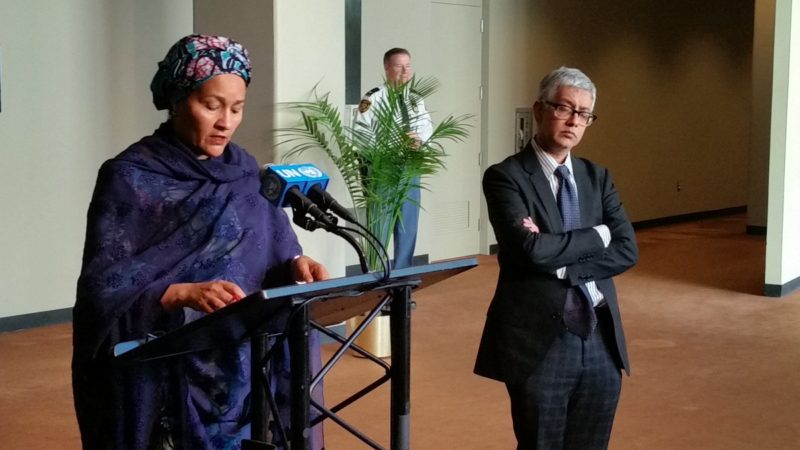A new report highlighting the role of South-South Cooperation in sustainable development and climate change challenges was launched on Wednesday, May 10, 2017 at the UN Climate Change Conference (SB46) holding in Bonn, Germany.

The report, tagged “Catalysing the Implementation of Nationally Determined Contributions in the Context of the 2030 Agenda through South-South Cooperation,” was created in a joint effort by the United Nations Executive Office of the Secretary-General, and the Secretariat of the United Nations Framework Convention on Climate Change (UNFCCC).
UN Deputy Secretary-General, Amina J. Mohammed, said: “As we face the spectre of growing unilateralism, protectionism and isolationism, it is increasingly vital that we empower partnerships for sustainable development. In this context, the efforts of the global South are gaining traction.”
UNFCCC Executive Secretary, Patricia Espinosa, said: “To encourage and enhance South-South cooperation, the United Nations is committed to supporting the global South. We commit our knowledge and resources to this effort and will mobilise other actors within the United Nations system whenever possible.”
The report focuses on the linkages of national climate action plans (nationally determined contributions, or “NDCs”) and sustainable development goals (SDGs), and highlights how a country can further climate action through South-South Cooperation. Developing countries can benefit significantly from southern solutions that can address both climate change and multiple development challenges through South-South Cooperation.
A crucial focus is placed on how the priority areas outlined in countries’ nationally determined contributions (NDCs) can act as an entry point for South-South cooperation and can boost climate action and sustainable development. Continuing a step further, the report outlines how the implementation of NDCs which are based on national development priorities will generate substantial co-benefits for the achievement of the SDGs.
South-South Cooperation has gained momentum in the past few decades, with the global south engaging through the exchange of experiences, and the provision of human, technical and financial resources. Many developing countries have also accumulated unique knowledge and experiences by adopting sustainable, low greenhouse gas emission and climate resilient development pathways, and by engaging other countries with development needs. There is huge potential for South-South Cooperation today and in the future to complement the support of developed countries.
The international community and the United Nations can play an important role to promote and facilitate this cooperation, particularly in regard to development and climate action, further unleashing its potential for the achievement of the Sustainable Development Goals.
The full report is available here.
